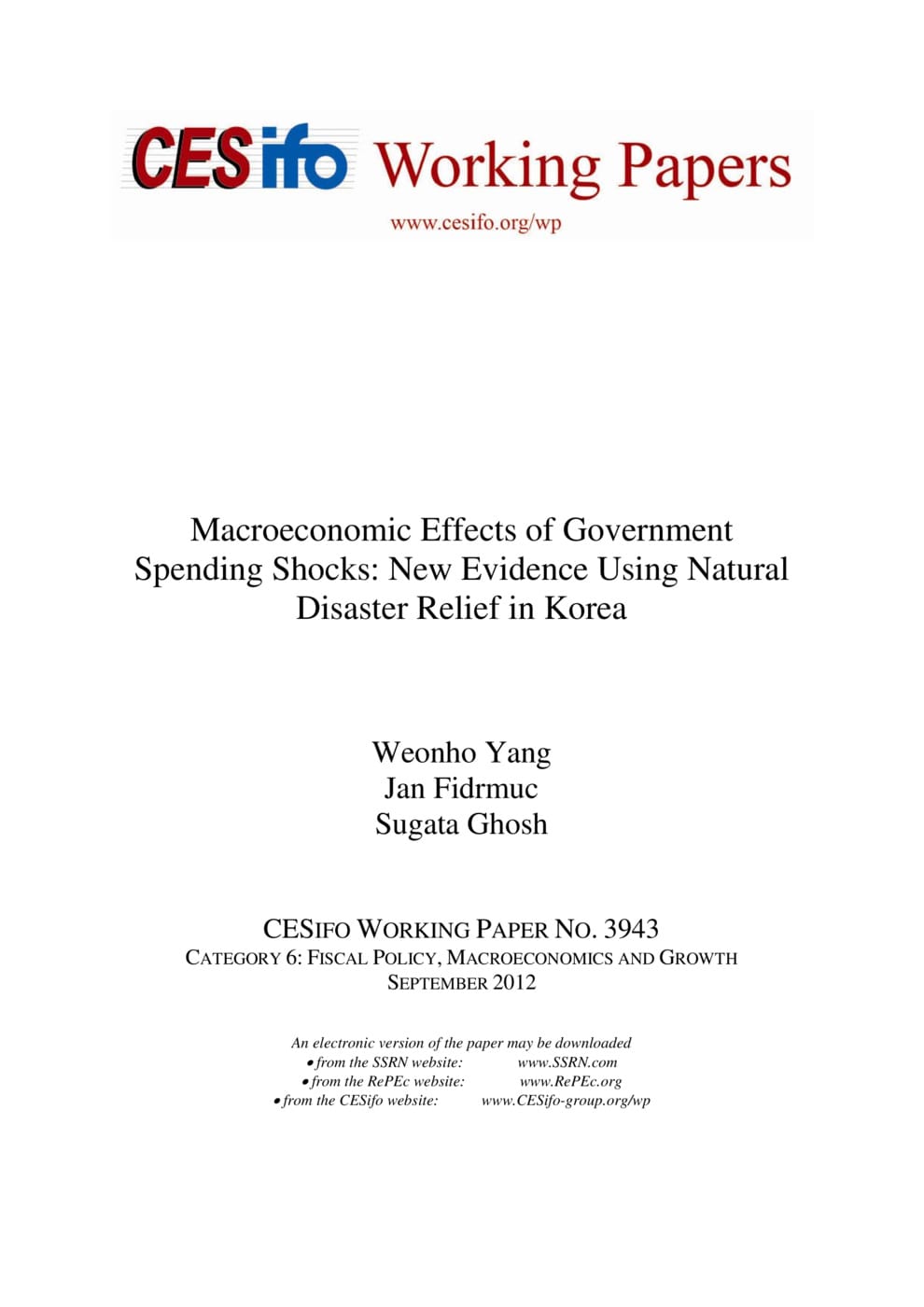Macroeconomic Effects of Government Spending Shocks: New Evidence Using Natural Disaster Relief in Korea
CESifo, Munich, 2012
CESifo Working Paper No. 3943

We investigate the macroeconomic effects of government spending shocks in Korea. We compare results obtained with two alternative approaches: the narrative approach and Structural Vector-Autoregressive model (SVAR). We propose a new methodology for identifying exogenous and unexpected fiscal shocks under the narrative approach: natural disasters and the associated government emergency spending in the wake of such disasters. Our results suggest that when government spending increases, the responses of GDP, private consumption, real wage and investment are all positive, which is in accord with the New Keynesian model. Similar results are obtained with both approaches. However, comparing the two approaches suggests that the timing is very important in identifying government spending shocks due to the anticipation effects of fiscal policy.
Fiscal Policy, Macroeconomics and Growth
Public Finance